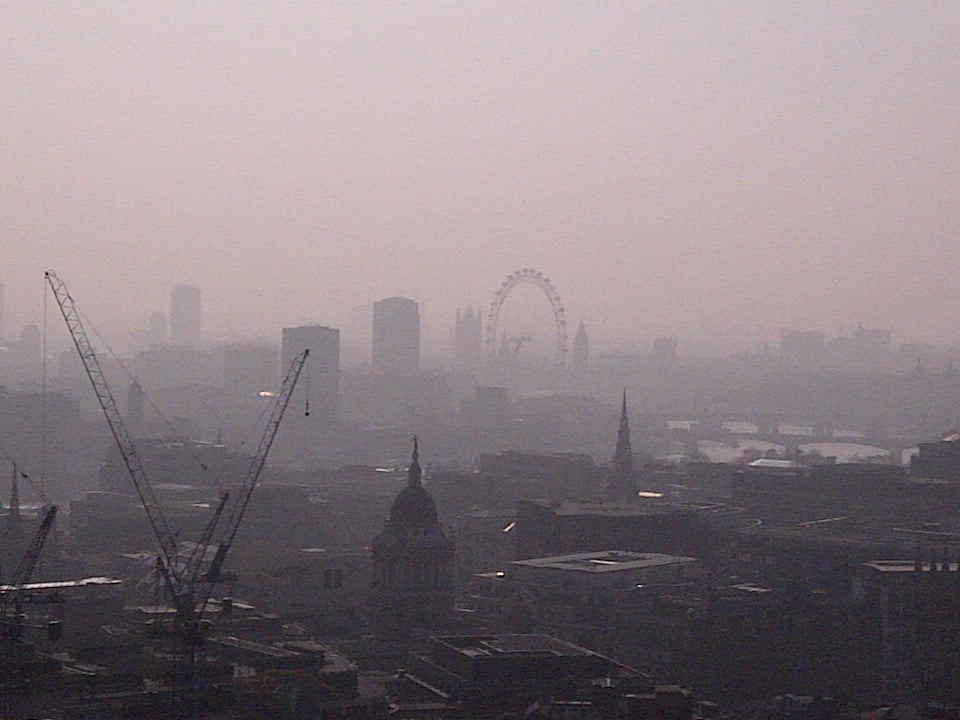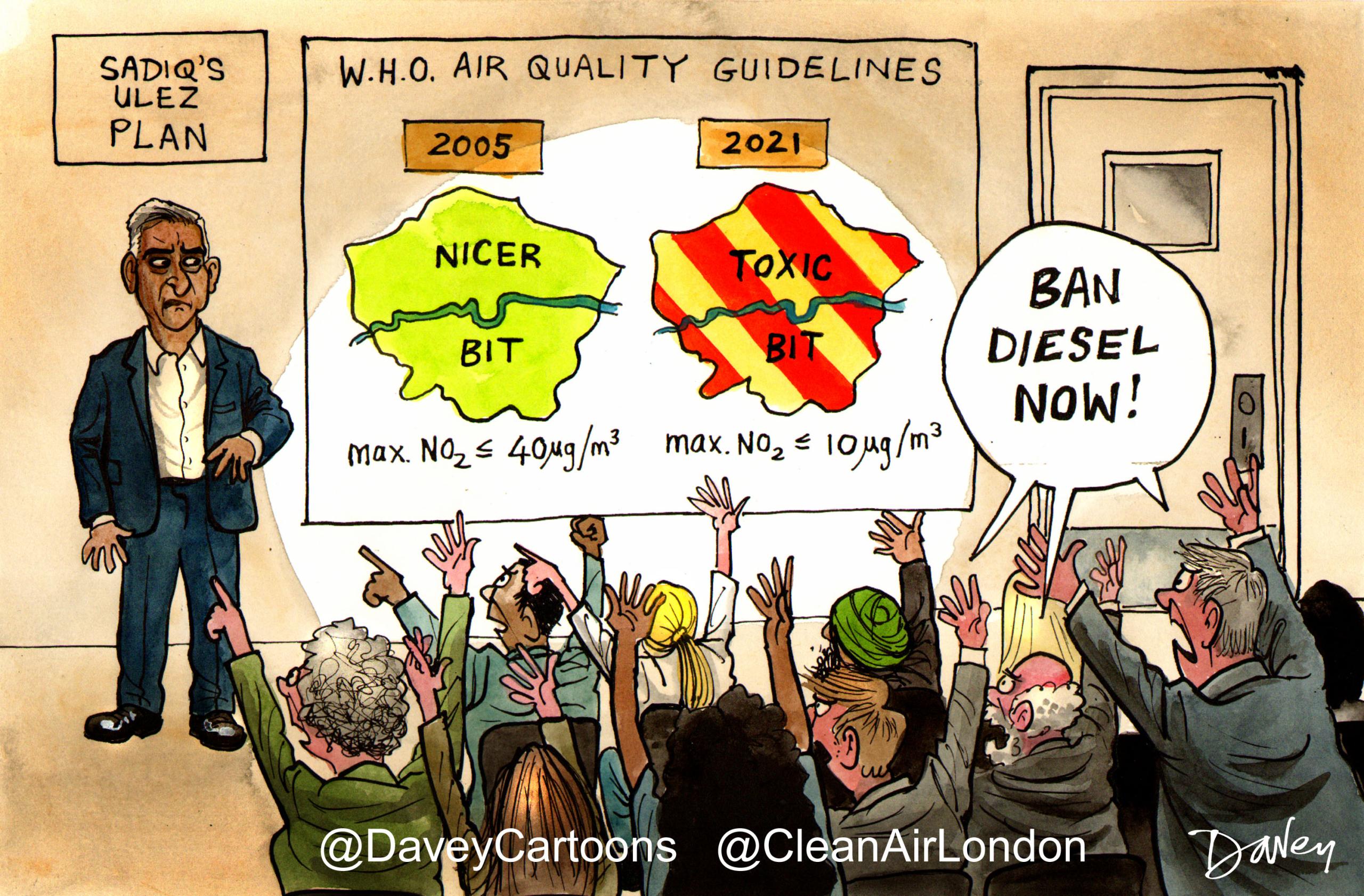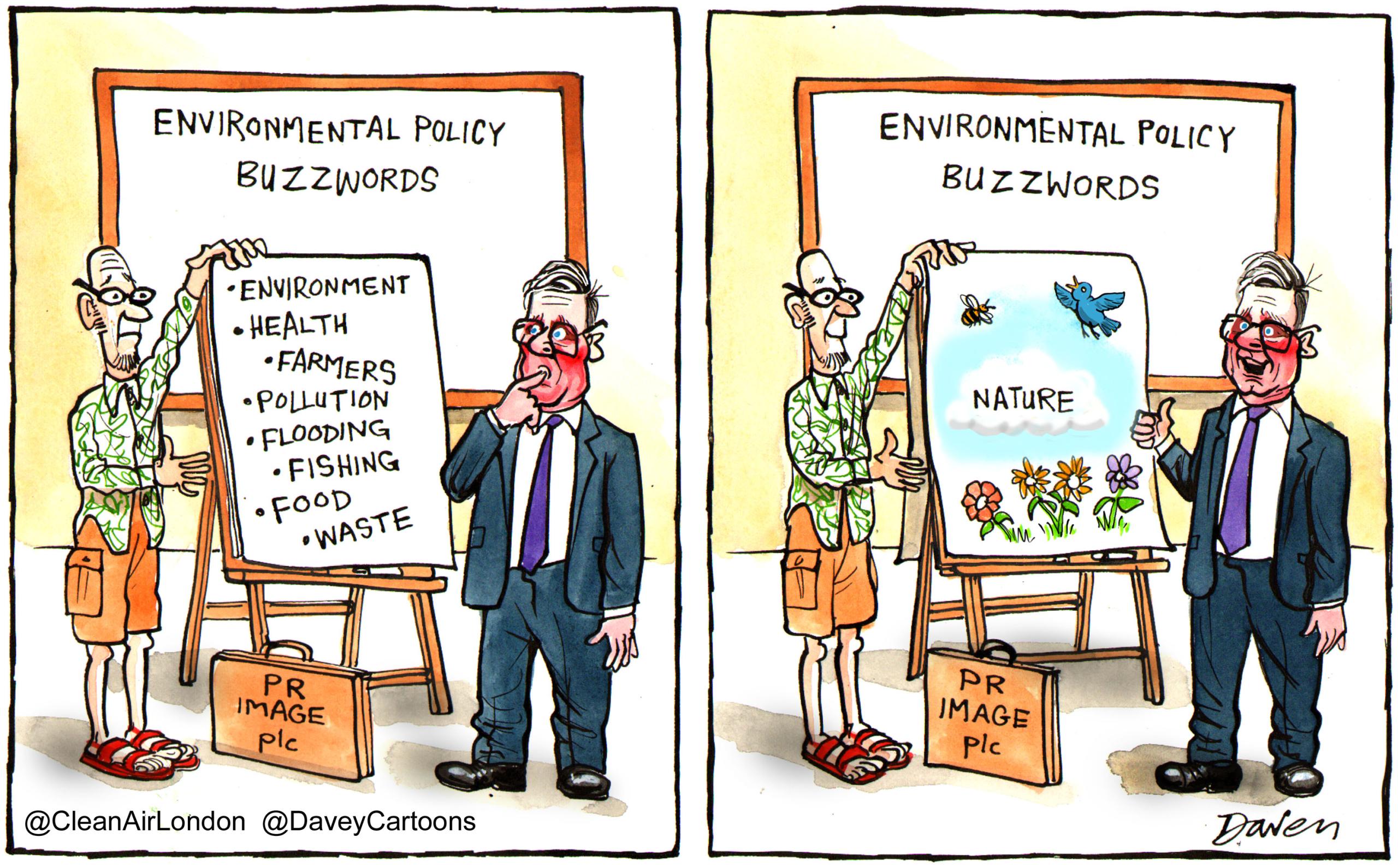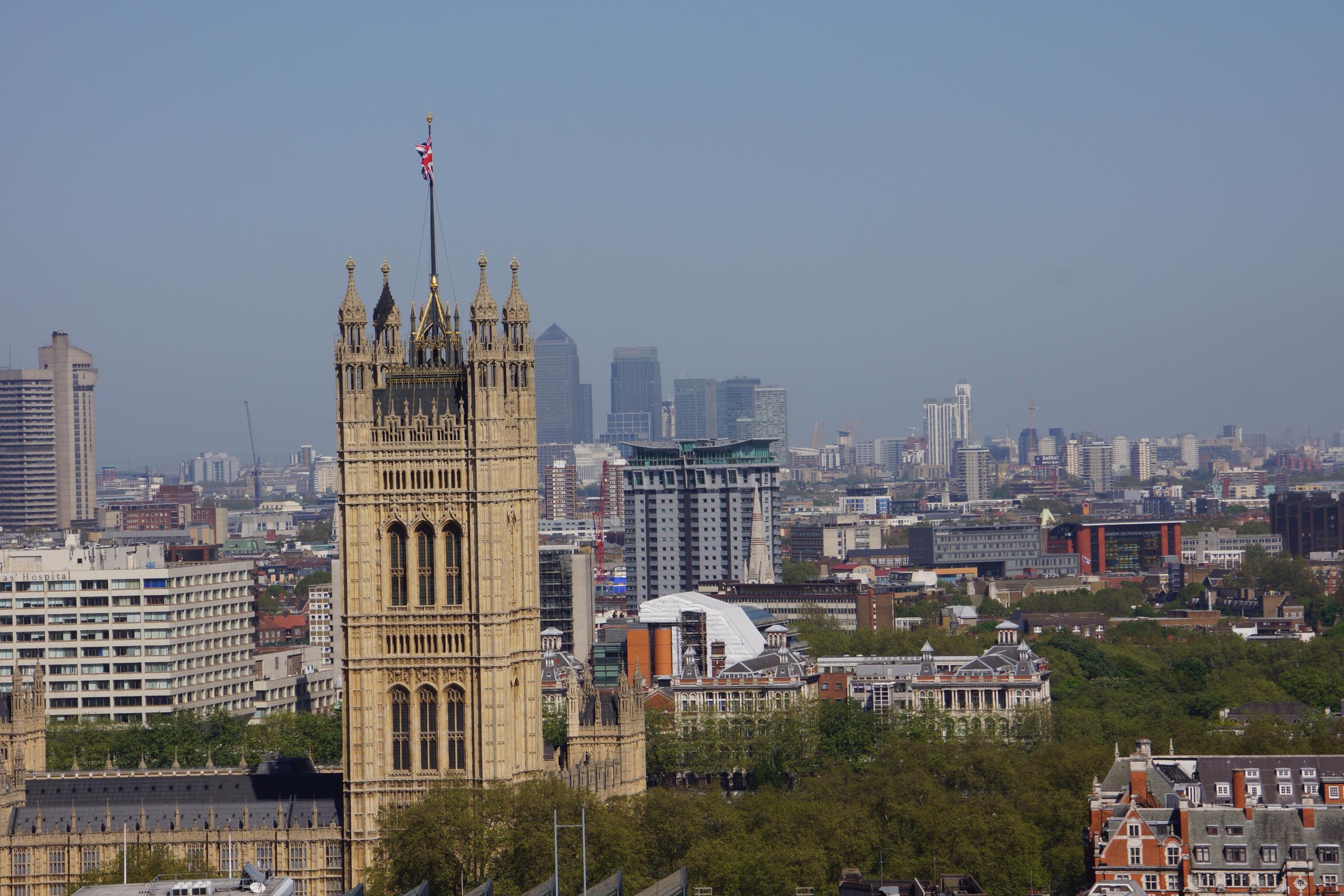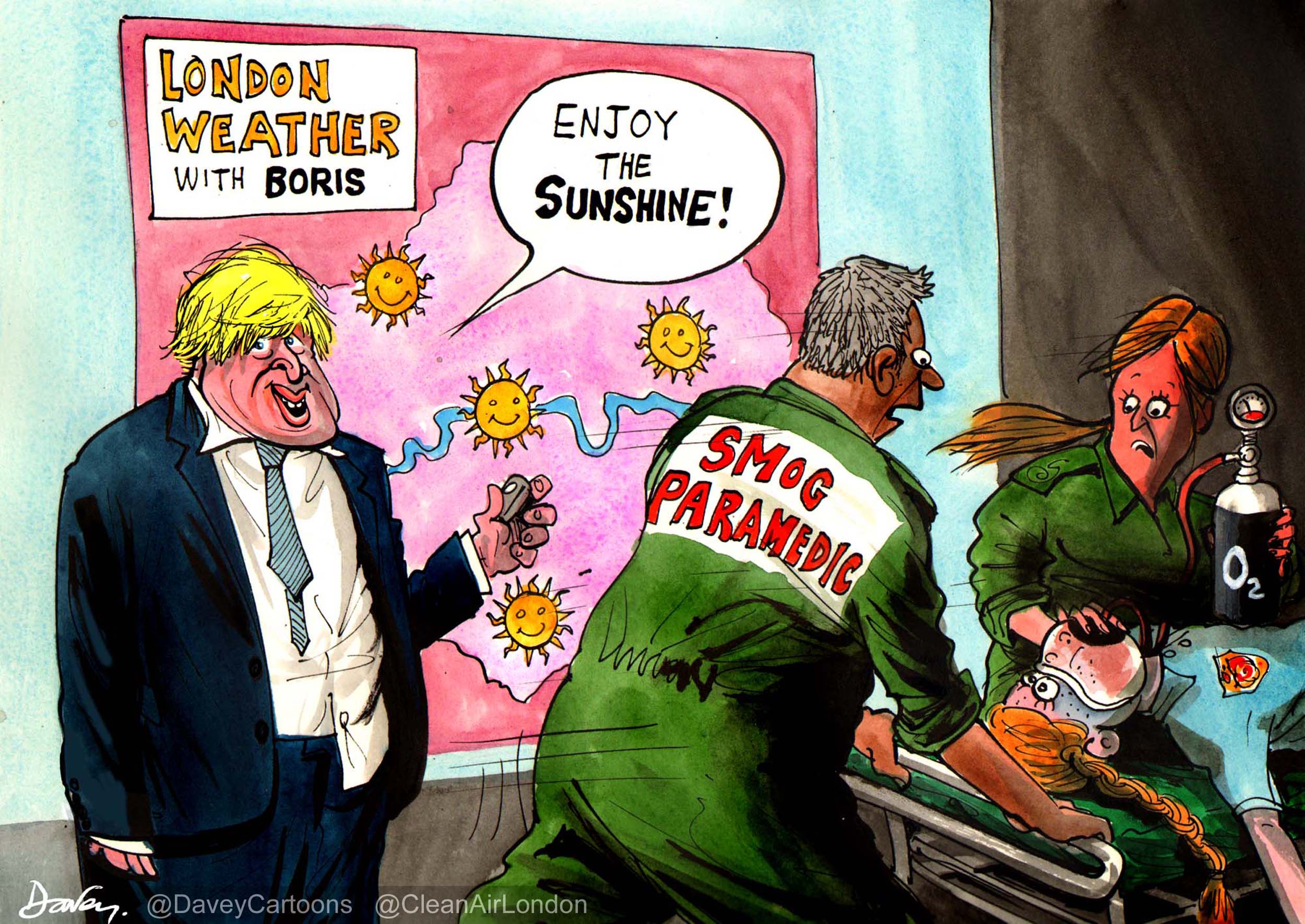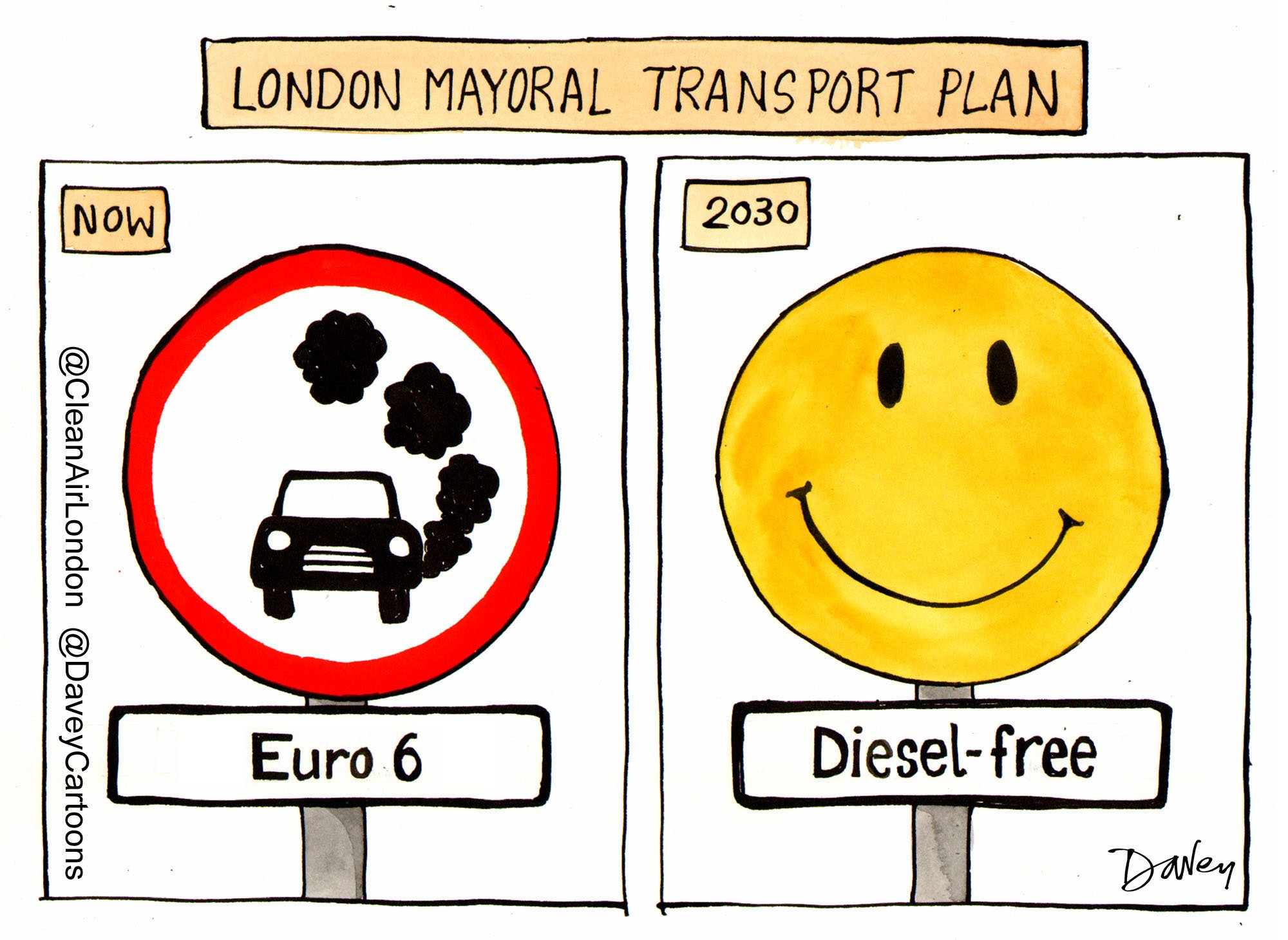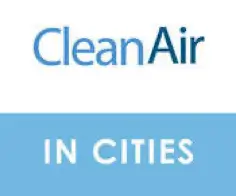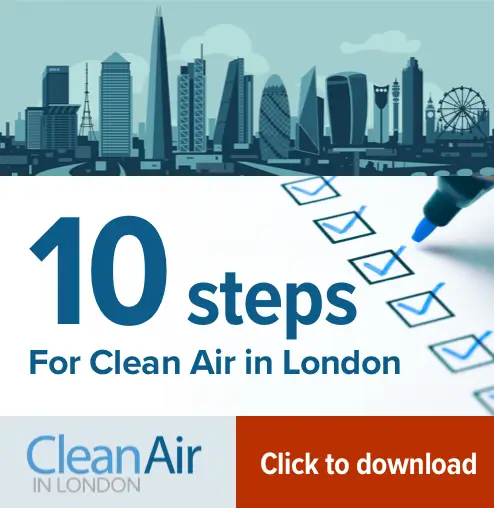Clean Air in London has issued a #CodeYellow warning to the organisers of the ‘Rock and Roll Liverpool Marathon’ and ‘Great Manchester Run’ for MODERATE air pollution on Sunday 20 May 2018
This warning follows a number of days of forecasts of MODERATE air pollution in Liverpool and Manchester for Sunday 20 May 2018.
https://uk-air.defra.gov.uk/forecasting/locations?q=Manchester
https://uk-air.defra.gov.uk/forecasting/locations?q=Liverpool
https://www.eea.europa.eu/themes/air/air-quality-index (search your city and click on monitoring sites for full details)
Quotes
Simon Birkett, Founder and Director of Clean Air in London, said:
“Multiple forecasters are predicting MODERATE air pollution in Liverpool and Manchester on race day.
“Air pollution is already rising in parts of those cities with levels expected to exceed one or more guidelines set by the World Health Organisation to protect health over the next 24 hours.
“Runners may experience unexpected symptoms that are not directly heat-related. These could include feeling sluggishness, shortness of breath, tightness of chest or coughing. There is no ‘safe’ level for exposure to air pollution and everyone is affected to some extent.
“Clean Air in London therefore issued a #CodeYellow warning to both event organisers this morning asking them to activate their ‘air pollution protocols’. [Both organisers subsequently issued health warnings on Saturday afternoon – Manchester was first.]
‘Air pollution protocols’ should always include the detailed tracking of air pollution levels by organisers and appropriate health advice to participants, referring to the additional risks of air pollution, in good time before the race.
“Runners are encouraged to follow official health advice and be prepared. Asthmatics, for example, should carry their medication. Any specialist Medical ID should be worn e.g. bracelets or ‘dog tags’.
“Defra breached the legal requirement to warn people about HIGH ozone air pollution on Bank Holiday Monday – the day of the Milton Keynes Marathon. Defra’s new website continues to hide vital information that would help event organisers and participants.
“Organisers should ensure that participants and spectators are properly advised so they are kept safe and can have fun.”
End quotes
Clean Air in London (CAL) received a London 2012 Sustainability Ambassadors Award for commitment to tackling air quality, climate change and sustainability issues during the London Olympic and Paralympic Games in 2012.
Since then CAL often checks forecasts of air pollution before major sporting events and notifies organisers and others if an air pollution episode is likely to occur on race day. Broadly speaking, MODERATE air pollution bands start around the World Health Organisation guideline level for individual pollutants.
CAL issued #CodeYellow alerts to the organisers of the London Marathon, Milton Keynes Marathon, Rock and Roll Liverpool Marathon and the Great Manchester Run in 2018. These were for particle or ozone air pollution episodes. All four forecasts correctly predicted air pollution around WHO guideline levels on the day at local ‘background’ monitoring locations i.e. as part of major episodes.
Notes
1. Useful air pollution forecasting (change from London to your location)
http://macc-raq-op.meteo.fr/index.php?category=ensemble&subensemble=epsgrams&date=LAST&city=London
http://www.londonair.org.uk/Londonair/Forecast/
https://www.metclim.com/air-quality-forecasts/
https://www.metoffice.gov.uk/public/weather/forecast/gcpvj0v07#?date=2018-05-19
https://www.metoffice.gov.uk/events
https://www.netweather.tv/charts-and-data/jetstream
https://air.plumelabs.com/en/live/london
2. Latest air pollution data
https://www.eea.europa.eu/themes/air/air-quality-index
https://uk-air.defra.gov.uk/latest/measurement-summary-map
https://uk-air.defra.gov.uk/latest/currentlevels
http://www.londonair.org.uk/london/asp/publicbulletin.asp
https://atmosphere.copernicus.eu/european-air-quality-information-support-covid-19-crisis
3. Other organisations which should consider issuing general and ‘event’ health advice
- Defra https://uk-air.defra.gov.uk
- Environment Agency
- Health and Safety Executive
- Met Office
- Public Health England
Other sources of information
https://cleanair.london/news/introduction-to-smog/
4. ‘Pollution Protocol’ to be considered by event organisers includes:
- Be prepared. Air pollution can kill. People should be kept safe and have fun!
- Issue updates and health advice for runners and spectators at least daily when air pollution may be MODERATE. Increase intensity of alerts during HIGH episodes
- Ask runners to check advice and carry their medication e.g. asthmatics
- Ensure sufficient first aid and other medical and emergency teams are briefed, prepared and in place along the whole course length
- Ensure adequate provision of water and energy bars or drinks for participants
- Organisers should make efforts to understand air pollution e.g. difference between particles (PM2.5 and PM10) and gases (e.g. ozone), which may occur separately, and their effects
- Organisers should undertake their own monitoring of particles (PM2.5, PM10 and particle number concentrations) and ozone (O3) or commission and track specialist independent monitoring. Note that some official monitoring bulletins are reset each midnight so look LOW in the morning e.g. particles on the London Air website
- Organisers should monitor activity during race day and respond accordingly e.g. incidents
- Medical professionals and emergency services should be warned to expect health effects one-three days afterwards e.g. Public Health England’s network
- Organisers should consider whether their event should be postponed or cancelled. They should also consider a 630am start for future endurance events particularly between April and October (in the northern hemisphere) when pollution levels (e.g. ozone) and temperatures may be lower. An ‘after action review’ should always be undertaken to learn lessons for future years and share knowledge with other organisers.
5. Previous official air pollution alerts
7 May 2018
https://www.gov.uk/government/news/air-quality-information-bulletin
21 June 2017
https://www.gov.uk/government/news/ozone-air-pollution-alert
6. Official health advice
Symptoms may include feeling:
- sluggishness
- coughs
- shortness of breath or breathlessness
- tightness of chest
Advice for ‘at risk individuals’ during MODERATE air pollution
Adults and children with lung problems, and adults with heart problems, who experience symptoms, should consider reducing strenuous physical activity, particularly outdoors.
Advice during HIGH air pollution
Anyone experiencing discomfort such as sore eyes, cough or sore throat should consider reducing activity, particularly outdoors.
Adults and children with lung problems, and adults with heart problems, should reduce strenuous physical exertion, particularly outdoors, and particularly if they experience symptoms. People with asthma may find they need to use their reliever inhaler more often. Older people should also reduce physical exertion.
Please always check official advice and information:
https://www.eea.europa.eu/themes/air/air-quality-index
https://cleanair.london/olympics/smog-could-affect-athletes/
https://www.metoffice.gov.uk/guide/weather/air-quality
https://www.epa.gov/ozone-pollution/health-effects-ozone-pollution
https://uk-air.defra.gov.uk/air-pollution/effects
http://www.runrocknroll.com/liverpool/news/2018/05/warm-race-day-prepared/
https://www.ncbi.nlm.nih.gov/pubmed/6653514
7. Defra track record e.g. London Olympics and other air pollution alerts
https://cleanair.london/health/defra-did-cover-up-smog-warnings-and-would-scrap-local-monitoring/
https://cleanair.london/olympics/government-forecasts-smog-on-eve-of-olympics-closing-ceremony/
https://cleanair.london/olympics/mayor-of-london-urged-to-warn-those-affected-by-smog/
8. Clean Air in London investigation into deaths during SAS selection in July 2013
9. Other
Air_Quality_Statistics_in_the_UK_1987_to_2018
bonfire_night_2002_ad-hoc_report
CAL 186 Introduction to smog_Defra report on smog 2003
CAL 186 Introduction to smog_Defra report on smog 2006
0707051330_Particulate_episode_Sept_06_issue1_
CAL 260 Defra Bonfire Night_Report_2007 (posted by Defra on 5 November 2009)
0907231147_Eight_National_AirQualityForecasting_Seminar_2009_Agenda
1007291014_0_Forecasting_Seminar_2010_Intro
1006241607_100608_MIP_Final_Version
1106011015_AEA_ED48946_SummaryPM10EpisodeAcrossEnglandWalesDuringMarch
1511251333_AQ1004_AQ_Forecasting_Annual_12_Final
https://unearthed.greenpeace.org/2017/01/12/air-pollution-episode-uk-300-deaths/
0705231409_AK_ForecastingConference
PHE re 2014 T2_Heaviside_Air-pollution_health
ENDS

